Cognitive Bias: Post Hoc Ergo Propter Hoc Fallacy Or ‘This Then That’
Principal Category: Cognitive Biases
Authors:
• Tim McGuinness, Ph.D. – Anthropologist, Scientist, Director of the Society of Citizens Against Relationship Scams Inc.
The Post Hoc Ergo Propter Hoc fallacy, attributing causation based solely on sequential events, is a cognitive trap exploited by scammers. Victims may wrongly link a scam email to subsequent financial loss, hindering recovery and discouraging seeking help. Education and critical thinking are crucial to combat this bias and empower individuals against manipulation. Recognizing this fallacy’s impact on scams and victims highlights the importance of support and resilience in navigating digital landscapes.

This Then That
Post Hoc Ergo Propter Hoc Fallacy Cognitive Bias
The Post Hoc Ergo Propter Hoc fallacy leads individuals to believe that if one event follows another, the first event must have caused the second.
The Post Hoc Ergo Propter Hoc fallacy, Latin for ‘After This, Therefore Because of This,” or ‘This Then That’ is a logical error in reasoning. It occurs when individuals mistakenly attribute causation to events merely because they happen sequentially. This fallacy overlooks other potential explanations and assumes a causal relationship where none may exist.
Scammers are adept at exploiting cognitive biases, including the Post Hoc Ergo Propter Hoc fallacy, to manipulate their victims. Consider a scenario where a victim receives a suspicious email promising great wealth if they provide personal information. Subsequently, the victim’s bank account is drained. The victim might erroneously conclude that the email caused the financial loss solely because it preceded it in time. In reality, the email and the financial loss could be unrelated, with the latter stemming from other factors like weak login security.
Scammers leverage this fallacy to create false narratives that deceive victims into believing their scams are legitimate. By orchestrating a sequence of events that appears connected, scammers reinforce the illusion of causation. For instance, a scammer might send a phishing email, followed by a phone call claiming to rectify a purported issue, and then witness the victim divulge sensitive information. The victim, swayed by the apparent sequence of events, may wrongly attribute the subsequent identity theft to the initial email.
For scam victims, falling prey to the Post Hoc Ergo Propter Hoc fallacy can exacerbate their vulnerability and perpetuate their victimization. Once ensnared in a scam, victims may cling to the belief that their actions directly caused the outcomes they experience. This cognitive distortion can intensify feelings of guilt, shame, and self-blame, hindering their ability to recognize the true manipulative tactics employed by scammers.
Also, the Post Hoc Ergo Propter Hoc fallacy can impede victims’ recovery and discourage them from seeking help. Instead of acknowledging the sophistication of the scam and the calculated tactics of the scammer, victims may attribute their misfortune solely to their own actions. Consequently, they may hesitate to report the scam, seek legal recourse, or access support services designed to aid scam victims in navigating the aftermath of fraud.
To combat the detrimental effects of the Post Hoc Ergo Propter Hoc fallacy, education and awareness are paramount. Empowering individuals with knowledge about cognitive biases, including this logical fallacy, can help inoculate them against manipulation by scammers. By promoting critical thinking skills and skepticism, people can learn to scrutinize causal relationships more objectively and discern genuine threats from deceptive ploys.
The Post Hoc Ergo Propter Hoc fallacy is a cautionary tale, reminding us of the pitfalls of hasty assumptions and faulty reasoning. In the context of scams and scam victims, this cognitive bias underscores the importance of critical thinking, education, and support. By recognizing the manipulative tactics employed by scammers and challenging the narratives that blame victims for their misfortune.
Explore more biases in the SCARS MANUAL OF COGNITIVE BIASES
Important Information for New Scam Victims
- See more at www.ScamVictimsSupport.org – a SCARS Website for New Scam Victims
IMPORTANT NOTE: This article is intended to be an introductory overview of complex psychological, neurological, physiological, or other concepts, written primarily to help victims of crime understand the wide-ranging actual or potential effects of psychological trauma they may be experiencing. The goal is to provide clarity and validation for the confusing and often overwhelming symptoms that can follow a traumatic event. It is critical to understand that this content is for informational purposes only and does not constitute or is not a substitute for professional medical advice, diagnosis, or treatment. If you are experiencing distress or believe you are suffering from trauma or its effects, it is essential to consult with a qualified mental health professional for personalized care and support.

Welcome to the SCARS INSTITUTE Journal of Scam Psychology
A Journal of Applied Scam, Fraud, and Cybercrime Psychology – and Allied Sciences
A dedicated site for psychology, victimology, criminology, applied sociology and anthropology, and allied sciences, published by the SCARS INSTITUTE™ – Society of Citizens Against Relationship Scams Inc.
TABLE OF CONTENTS
A Question of Trust
At the SCARS Institute, we invite you to do your own research on the topics we speak about and publish, Our team investigates the subject being discussed, especially when it comes to understanding the scam victims-survivors experience. You can do Google searches but in many cases, you will have to wade through scientific papers and studies. However, remember that biases and perspectives matter and influence the outcome. Regardless, we encourage you to explore these topics as thoroughly as you can for your own awareness.
Please Leave A Comment
Recent Comments
On Other Articles
[better_recent_comments number=”5″ format=”{avatar} on {post}: “{comment}” {date}” avatar_size=”20″]
A Note About Labeling!
We often use the term ‘scam victim’ in our articles, but this is a convenience to help those searching for information in search engines like Google. It is just a convenience and has no deeper meaning. If you have come through such an experience, YOU are a Survivor! It was not your fault. You are not alone! Axios!
Statement About Victim Blaming
Some of our articles discuss various aspects of victims. This is both about better understanding victims (the science of victimology) and their behaviors and psychology. This helps us to educate victims/survivors about why these crimes happened and to not blame themselves, better develop recovery programs, and to help victims avoid scams in the future. At times this may sound like blaming the victim, but it does not blame scam victims, we are simply explaining the hows and whys of the experience victims have.
These articles, about the Psychology of Scams or Victim Psychology – meaning that all humans have psychological or cognitive characteristics in common that can either be exploited or work against us – help us all to understand the unique challenges victims face before, during, and after scams, fraud, or cybercrimes. These sometimes talk about some of the vulnerabilities the scammers exploit. Victims rarely have control of them or are even aware of them, until something like a scam happens and then they can learn how their mind works and how to overcome these mechanisms.
Articles like these help victims and others understand these processes and how to help prevent them from being exploited again or to help them recover more easily by understanding their post-scam behaviors. Learn more about the Psychology of Scams at www.ScamPsychology.org
Psychology Disclaimer:
All articles about psychology, neurology, and the human brain on this website are for information & education only
The information provided in these articles is intended for educational and self-help purposes only and should not be construed as a substitute for professional therapy or counseling.
While any self-help techniques outlined herein may be beneficial for scam victims seeking to recover from their experience and move towards recovery, it is important to consult with a qualified mental health professional before initiating any course of action. Each individual’s experience and needs are unique, and what works for one person may not be suitable for another.
Additionally, any approach may not be appropriate for individuals with certain pre-existing mental health conditions or trauma histories. It is advisable to seek guidance from a licensed therapist or counselor who can provide personalized support, guidance, and treatment tailored to your specific needs.
If you are experiencing significant distress or emotional difficulties related to a scam or other traumatic event, please consult your doctor or mental health provider for appropriate care and support.
Also, please read our SCARS Institute Statement About Professional Care for Scam Victims – here
If you are in crisis, feeling desperate, or in despair please call 988 or your local crisis hotline.
SCARS Institute Resources:
- If you are a victim of scams go to www.ScamVictimsSupport.org for real knowledge and help
- Enroll in SCARS Scam Survivor’s School now at www.SCARSeducation.org
- To report criminals visit https://reporting.AgainstScams.org – we will NEVER give your data to money recovery companies like some do!
- Sign up for our free support & recovery help by https://support.AgainstScams.org
- Follow us and Find our podcasts, webinars, and helpful videos on YouTube: https://www.youtube.com/@RomancescamsNowcom
- SCARS Institute Songs for Victim-Survivors: https://www.youtube.com/playlist…
- See SCARS Institute Scam Victim Self-Help Books at https://shop.AgainstScams.org
- Learn about the Psychology of Scams at www.ScamPsychology.org
- Dig deeper into the reality of scams, fraud, and cybercrime at www.ScamsNOW.com and www.RomanceScamsNOW.com
- Scam Survivor’s Stories: www.ScamSurvivorStories.org
- For Scam Victim Advocates visit www.ScamVictimsAdvocates.org
- See more scammer photos on www.ScammerPhotos.com


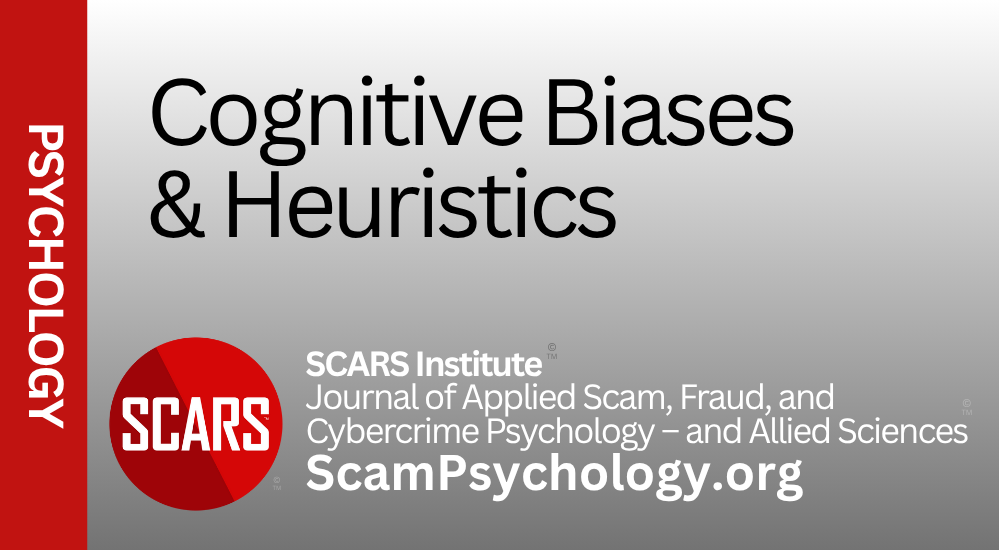
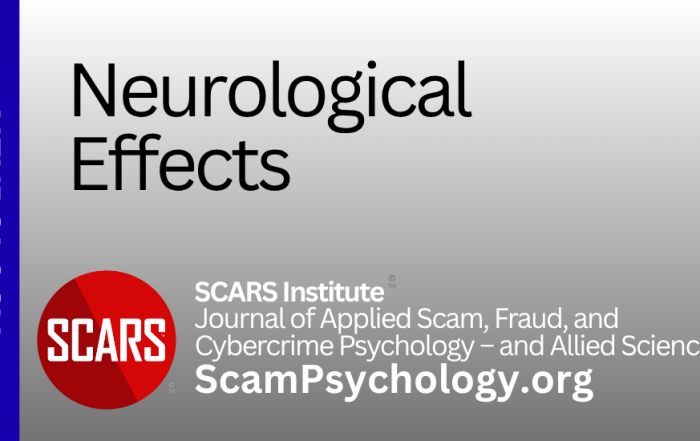

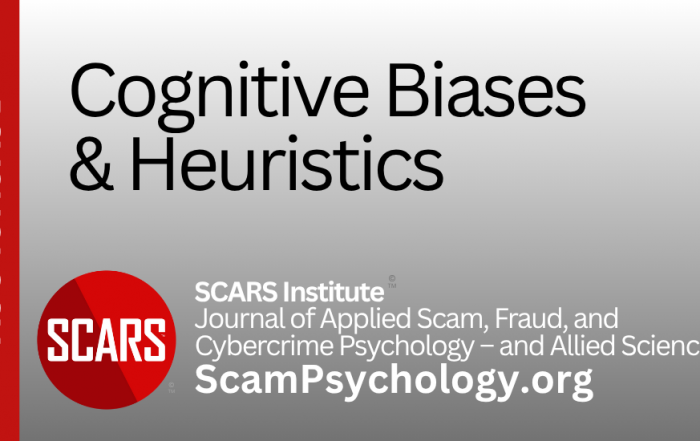
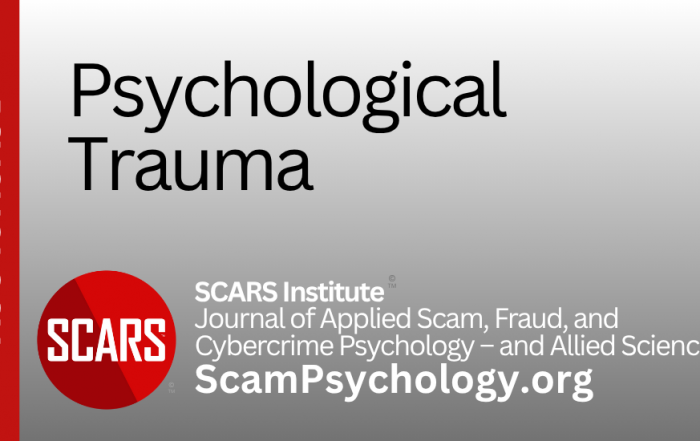
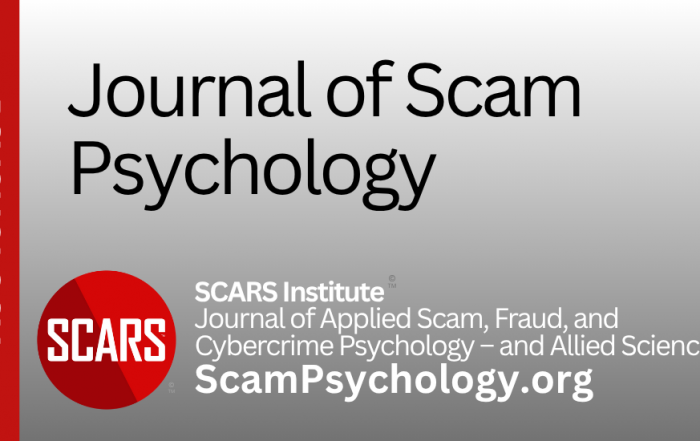
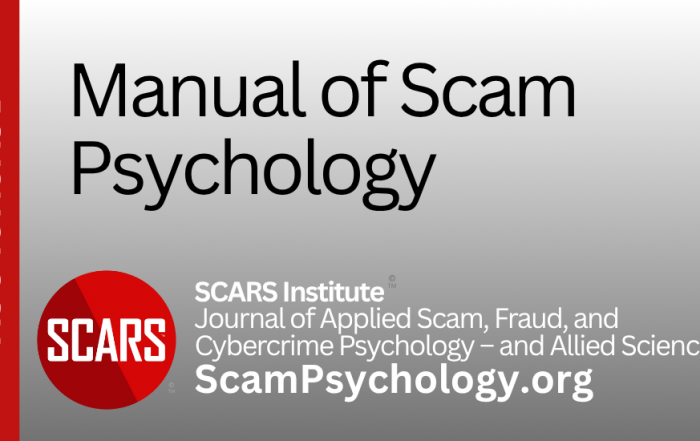

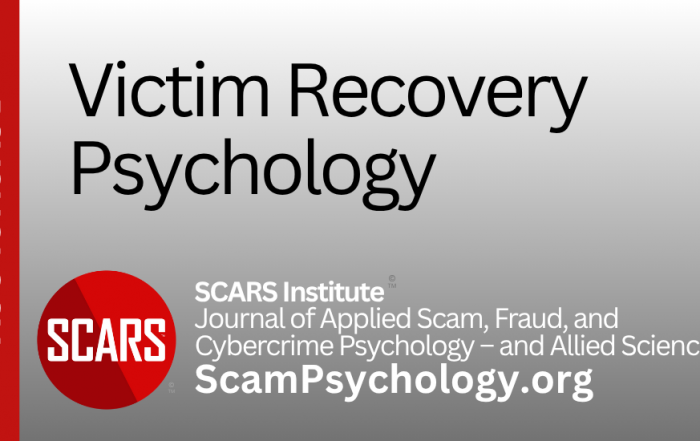
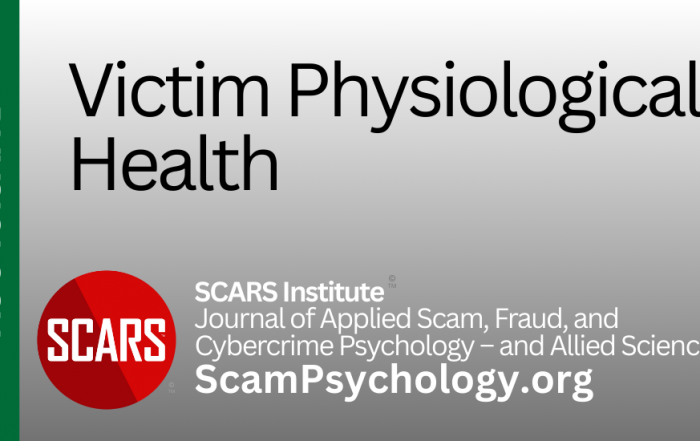

![niprc1.png1_-150×1501-11[1]](https://scampsychology.org/wp-content/uploads/2025/05/niprc1.png1_-150x1501-111.webp)